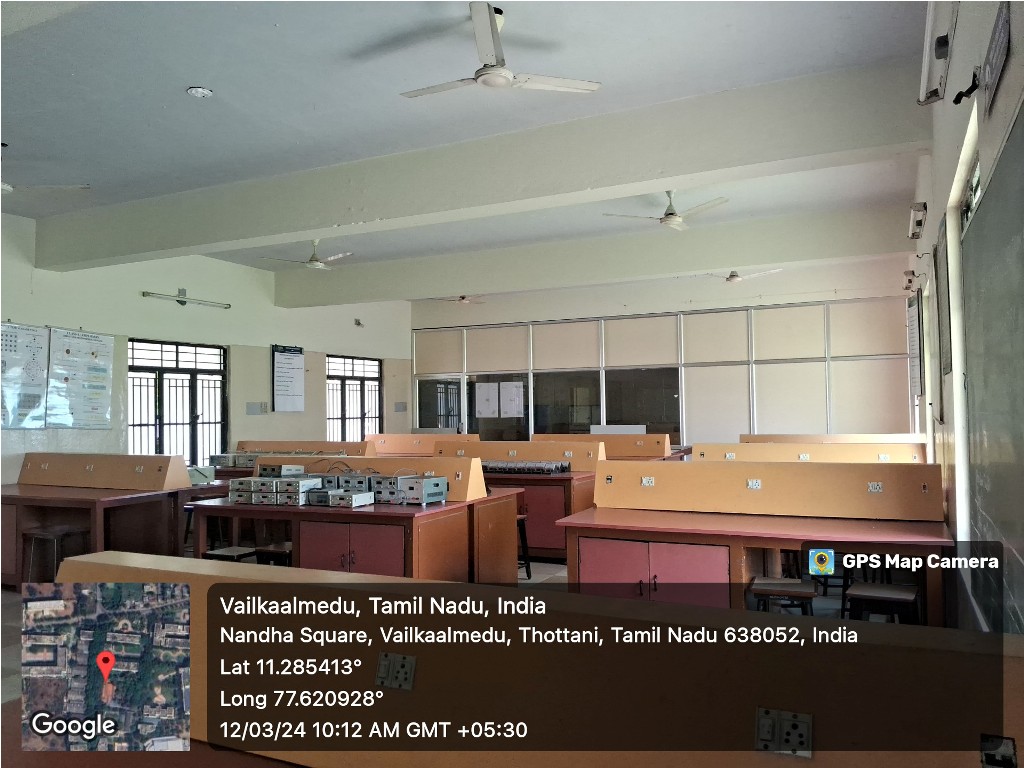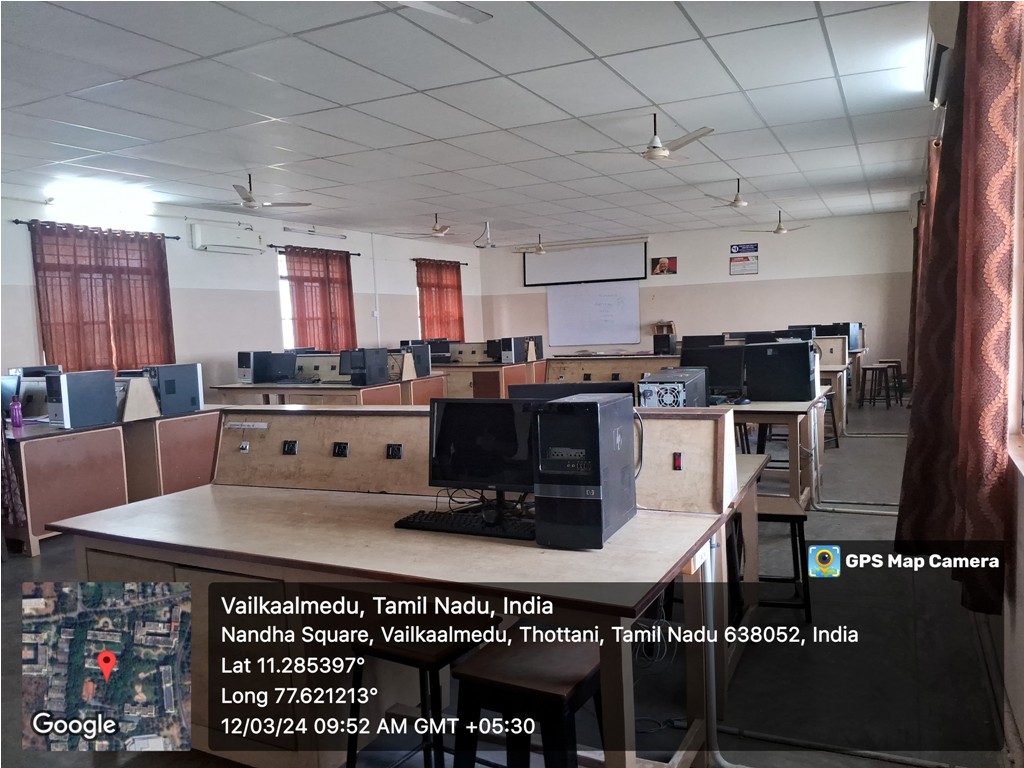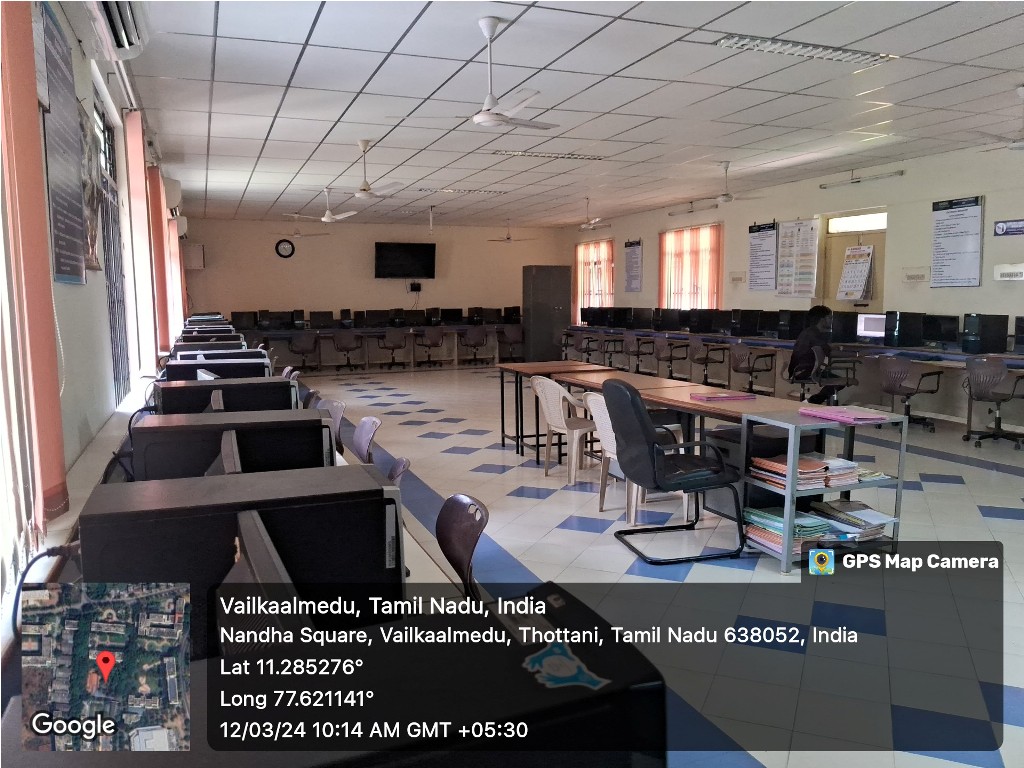LAB FACILITIES
Electronic Devices and Circuits Lab
The laboratory is well equipped with the collection of components like dual trace and digital storage Oscilloscope, Function Generators, Power Supplies, Bread boards. Guidance is provided to the students by a team of expert faculty and lab technicians. Students are grouped into small teams and guided for project based learning.

ELECTRONICS DEVICES AND CIRCUITS LAB
Microprocessor Lab
This lab helps the students enhance their knowledge about various processors such as 8085, 8086, microcontrollers kits with variety of interfaces and control kits like Temperature Controller, LVDT Position Controller, Stepper motor Controller and Traffic light Controller. Students from other branch of engineering also develop their skills in the field of microcontroller and its applications. The features and facilities available in this lab will help the students do their projects and enhance their knowledge about the latest trends.

IC AND MICROPROCESSORS LAB
Digital Lab
Numbers of Digital IC’S are available to get the knowledge about logical circuits and their components for the students. Analog and Digital Trainer Kits are used to built combinational and sequential circuits. Students are supported to carry out mini projects using Digital and Analog circuitry.

DIGITAL LAB
Microwave and Optical Communication Lab
The students are exposed to the microwave active devices like Klystron, Gunn diode, Isolator, Circulator, slide screw tunner, magic tee, directional coupler, horn antenna, attenuator, terminations.
Optical communication lab is equipped with trainer kits, Power sources and Power Meters to enable the study of components of an optical communication system.
The Communication Lab has been equipped with Function generator, Noise generators, AM / FM transmitter and receiver kits and many other experimental kits.

MICROWAVE AND OPTICAL COMMUNICATIONS LAB
Electronic System Design Lab
A number of TMS 320CS50 trainer kits and the MAT LAB software’s are available in which the students are trained to do the experiments in the software on realization of filters, FFT and convolution etc.,

ELECTRONIC SYSTEMS DESIGN LAB
Simulation Lab
The field of DSP/VLSI was developed due to the flexibility offered by the use of digital computers in implementing signal processing algorithms and systems. The lab is equipped with personal computers with higher configuration, where students practice program in DSP and VLSI using MATLAB & Xilinx software and analyze the communication systems through Network Software N-sim and L-Sim.

SIMULATION LAB
PG VLSI Laboratory
Advanced features and techniques of VLSI design provides students the necessary training to develop complex VLSI systems and enables them to improve their designs by using the tools available in the laboratory
Labs Provide hands-on experience with the development, verification, debugging and simulation of a VLSI System. Labs use demo boards in which designs are downloaded and verified.
The department has well-equipped laboratories with modern and latest equipments like VLSI FPGA Kits, Embedded Processor Kits and Software like Xilinx, Keil.

PG VLSI LAB
Project Lab
The Project Laboratory offers the students, the opportunity to gain valuable hands-on experience where students become proficient in both the physical and creative skills needed in the field of Electronics and Communication Engineering. The Project Laboratory has a key role in promoting practical learning experience, a place where they develop creative proposals, and execute their PBL/mini projects. The main purpose of Project Laboratory is to provide an environment for student for developing their Project based learning (PBL) subjects and Final year main projects.

PROJECT LAB
Antenna Research Lab
Aims at providing training for students, Faculty and research scholars interested in Antenna Design, Measurement techniques and Electromagnetics. Ensure that developed Antennas meet relevant industry standards and regulatory requirements regarding Electromagnetic compatibility, Safety and Interference.
 ANTENNA RESEARCH LAB
ANTENNA RESEARCH LAB
Nano Research Lab
Nano research lab aims to develop Nanoparticles which after characterization helps to identify the suitable Nano coated electrode for acquiring the human physiological data like EMG, EEG and ECG.




